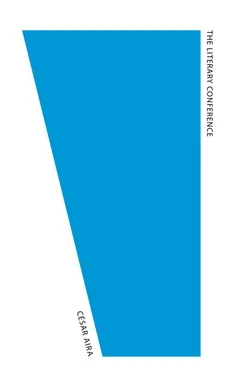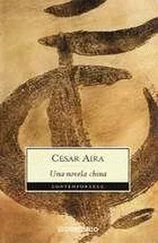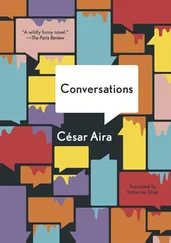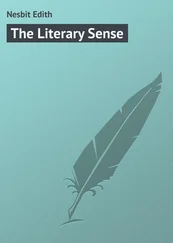I would immediately open my eyes, and the scene would vanish. The hatred with which those two little optical men hurled themselves at each other filled me with horror. I couldn’t stand it, and so made them dissolve by popping open my eyes, reducing the scene to a quick sketch of an unarmed thrust. What happened next? I never found out, but perhaps one day I will.
The performance was on Saturday, late afternoon. I cut short by a little — a very little — my session at the pool, showered, and took a brief nap. I went downstairs after they telephoned me to say that the bus was ready to leave. My colleagues, both men and women, were all dressed in their Sunday best, as if they were going to the opera. The young female students — conference volunteers — wore fancy outfits, and their dark, heavily made-up faces were crowned by high, elaborate hairdos, topped with silk bows. Two buses were waiting, as well as a long line of taxis and limousines. As always, we were running late. I got on the first bus, whose driver was impatiently honking the horn, and we shot off. To save time, we took the highway that circled the city, and the whole way I contemplated the view of the mountains through my window, absorbed in my own thoughts. If my calculations were correct, that very night the final gong would sound as my cloning machine completed its task and the Genius hatched from his shell. Creation’s integuments were undoubtedly already expanding. At dawn, the finished clone of Carlos Fuentes would be making its way down the mountain, and thus the final phase of my Great Work would commence.
At the airport everything was ready for the show, which began as soon as the last invited guests arrived. Though they had reserved a seat for me in the front row, I preferred to watch it from further back, standing up, hidden — one could say — “in the wings,” that is, behind the plants, because the show was being staged in a garden surrounded by waiting gates, ticket counters, and the bar of the glass-enclosed pre-boarding area. It was a marvelous garden, though somewhat wild; at those latitudes it is difficult to keep vegetation under control. Bushes with flame-like flowers surrounded the palm trees, the banyan tree spread its eavelike branches in all directions, the fern fronds formed dense screens, and everywhere hung enormous yellow, violet, and blue orchids. The leaves of some of the plants were so large that one was enough for me to hide behind. I enjoyed spying on the audience. Everyone looked like automatons from the very heart of my experiments. I underwent some kind of doubling of the self. I thought: “If they were real, what would they be doing right now?” But the other part of me knew they were real. It was as if reality itself had switched time frames and one had leapt into another. . Years ago, in this same place, I had seen Amelina for the last time, we’d said our final parting words, replete with tears and promises. This spot remained pregnant, like objective rapture. I realized I was looking for her but wouldn’t see her. How to see through the walls of the present? The garden’s exuberance, transparent in its repetition, was reflected in the buildings’ enormous panes of glass, and through those ghostly labyrinths passed the airplanes’ huge white forms.
It may have had something to do with the time of day. The sun had dropped behind the mountains, which were so high and so close, thereby causing confusion. After disappearing from the sky, the sun’s golden glow in the atmosphere intensified.
The moment the first lines of dialogue were spoken — which I remembered better than I would have wanted to — things got stranger. My eyes were drawn, as if magnetically, to Carlos Fuentes, sitting in the front row. I saw he was absorbed in the play, totally focused, transported to another world. By his side sat his wife, Sylvia, as beautiful as the good fairy of storybook fame, looking relaxed and with a vague smile of interest playing on her lips. Authorial vanity, which never completely fell away, not even at that moment, made me wonder what they would think of my little play. I feared I would come up short in their estimation. But, I told myself, this was inevitable, and anyway, what did it matter at this point?
The laughter surprised me. I had forgotten that an audience could react. I quickly turned my attention back to the actors, who were evolving in the middle of the garden. Eve was lying on a divan, wearing a cumbersome red sultana’s dress and holding in her arms a rubber Mickey Mouse doll. She seemed to be waiting for something with great impatience. Two jesters played on harps at her feet. A servant entered and announced:
“Mr. Adam can’t come right now. He’s busy.”
What was all this about? I didn’t recognize it, it was too Dadaist. Nevertheless, I had written it. Eve went to his laboratory to get him. Adam agreed to have tea with her, but not to put down his Exoscope, an enormous instrument he carried around with great difficulty. Slowly, I began to remember. Yes, I had written that. Moreover, they were scrupulously following the text, to the very last comma. Gone were any remaining doubts that I had written it, for there were my recurrent themes, my little tricks, and even the dialogues I had lifted verbatim from reality and that carried me back to teas I’d had with my wife on long-ago summer afternoons. But why were they drinking from such oversized five-gallon cups? At that point, I had to remember (which I did) my mental process while I was writing; in this case, remembering meant reconstructing. That detail about the cups meant to suggest that at the beginning of the world there was still no congruency in the sizes of things: this had required a much longer span of evolution. The dialogues, spoken with a Caribbean accent, sounded strange to me, especially when I began to recall their intellectual pulse, but I had to admit they were verbatim.
There was only one innovation in this production: Adam was black. Though this didn’t exactly qualify as an innovation. The actor was black, and he was probably the best actor they had. They weren’t about to discriminate against him! In Venezuela there are lots of blacks, though many fewer in the Andean region, and even fewer at the university. Those there are tend to be outstanding, so it shouldn’t have surprised me that they had given him the main role. They probably pretended he was just another actor, like any of the others, and, to tell the truth, I was probably the only one who realized he was black.
As for the Exoscope Adam carried around with him throughout the entire play, they had, indeed, done a good job, even though they resorted to the simplest and most unimaginative solution. The entire play pivoted on this instrument. In the notes, I had specified only its size (six-and-a-half feet by five feet by three-and-a-half feet, more or less) and that it should look like a scientific-optical device. The idea, which the props person had understood, was that it would be a celibate machine; perhaps he had understood it a little too well, because this Exoscope looked a lot like Duchamp’s Large Glass .
The plot unfolded one event at a time. The entire drama was based on the mysterious impossibility nested at the very heart of the relationship between the two protagonists. Their love was real, but at the same time it was impossible. Adam’s experiments, Eve’s courtesan frivolities, all were mere evasions. Love was revealed as an impossibility that seemed either metaphysical or supernatural, but was in reality very simple and even prosaic: Adam was married.
I must confess, I didn’t know how to resolve the difficult problem this plot line presented. Because if Adam and Eve were, respectively, the only man and the only woman on the planet, then Adam’s wife — the absent wife whose existence prevented him from living out his love with Eve — couldn’t be anybody other than Eve herself. The idea (very characteristic of me, to the point that I believe it to be how I conceive of literature) had been to create something equivalent to those figures that was both realistic and impossible, like Escher’s Belvedere , figures that look viable in a drawing but could not be built because they are but an illusion of perspective. Such a thing can be written, but one must be very inspired, very focused. I fail because of my precipitousness, my rush to finish, and my desperation to please. I was able to sustain it in this play only through the strength of ambiguities and funny repartees. And only for a short time, because very soon things started to happen.
Читать дальше












